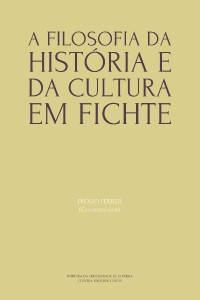Please use this identifier to cite or link to this item:
https://hdl.handle.net/10316.2/89416| DC Field | Value | Language |
|---|---|---|
| dc.contributor.author | Rampazzo Bazzan, Marco | |
| dc.date.accessioned | 2019-11-28T16:24:06Z | |
| dc.date.accessioned | 2020-08-27T17:53:14Z | - |
| dc.date.available | 2019-11-28T16:24:06Z | |
| dc.date.available | 2020-08-27T17:53:14Z | - |
| dc.date.issued | 2019 | - |
| dc.identifier.isbn | 978-989-26-1754-1 (PDF) | |
| dc.identifier.isbn | 978-989-26-1753-4 | |
| dc.identifier.uri | https://hdl.handle.net/10316.2/89416 | - |
| dc.description.abstract | This paper aims at investigating the enigmatic and old-fashioned word Zwingherr that Fichte uses in his philosophical Journal and in his Doctrine of State. Existing translations equate it with a Despot, Oppressor or Dictator. However existing secondary literature does not explain why Fichte chose to use this old medieval German word. My thesis is that Fichte takes possession of this old term and gives it a new meaning (which amounts to a semantic neologism). The term “Zwingherr” used to have a negative connotation, but Fichte transforms it and gives it a positive meaning (Treitschke 2001). Indeed Fichte uses “ZH” to designate both a fully legitimate and autochthonous sovereign power (Oberherr) and the justice of government actions (ZH zum Recht = “King who constrains to serve the right”). Zwingherr helps Fichte discuss two questions which his doctrine of right of 1812, due to it’s a priori approach, had been unable to answer: the historical origins of sovereign power, and the justice of government actions. Fichte tackles these issues in the spring of 1813, while the Prussian government is preparing a war against the French Empire. Fichte wants to understand the challenges that this conflict would create from a social perspective. The public lectures on the Doctrine of State constitute a philosophical “counter-call” to the Prussian government’s war preparations, and to patriotic writings pushing for war. Fichte views the looming Franco-Prussian conflict as a constitutional process that would stimulate the formation a new German republic, and he aims to play a role in the formation of this new nation. He wants this future nation to take the form of a “community of intentions”. | eng |
| dc.description.abstract | Estas páginas se plantean la tarea de analizar la figura enigmática y anticuada (ya en la época) del Zwingherr que Fichte utiliza en su diario filosófico e introduce en sus conferencias de filosofía aplicada de 1813 (Doctrina del Estado). Se tratará por un lado, de mostrar cómo esta figura permite de desarrollar dos problemas que Fichte no había podido profundizar al interior del curso sobre la Rechtslehre de 1812 a causa del aproche a priori que caracteriza su cuestionamiento filosófico de la disciplina del derecho público alemán (Staatsrecht). Por el otro de presentar el Zwingherr como una figura emblemática de la filosofía aplicada o sea de un pensamiento con vocación a influir sobre su propio presente. En la primavera de 1813 Fichte trata de estas cuestiones en una precisa coyuntura política. Cuando el gobierno prusiano se prepara y llama los pueblos alemanes a una guerra de liberación en contra del Imperio de los Franceses, Fichte se plantea de dar forma a una reflexión en contrapunto al discurso ideológico – patriótico dominante. Finalmente se tratará de comprender sus conferencias de filosofía aplicada como una contra-interpelación filosófica. Su objetivo es lo de influenciar los acontecimientos para abrir el camino a un verdadero proceso constituyente. Este proceso pasaría por la creación de una “comunidad de intenciones” en el marco de la acción del publico sabio como embrión de la autoconsciencia del pueblo interpelado a formarse. | spa |
| dc.language.iso | spa | - |
| dc.publisher | Imprensa da Universidade de Coimbra | por |
| dc.rights | open access | - |
| dc.subject | Zwingherr | eng |
| dc.subject | Soveragnity | eng |
| dc.subject | Napoleon | eng |
| dc.subject | Zwingherr | spa |
| dc.subject | Soberania | spa |
| dc.subject | Napoleon | spa |
| dc.title | El enigma del ‘Zwingherr’ | por |
| dc.title.alternative | The enigma of Fichte's Zwingherr | eng |
| dc.type | bookPart | por |
| uc.publication.firstPage | 241 | - |
| uc.publication.lastPage | 257 | - |
| uc.publication.location | Coimbra | por |
| dc.identifier.doi | 10.14195/978-989-26-1754-1_10 | - |
| uc.publication.digCollection | PB | por |
| uc.publication.orderno | 11 | - |
| uc.publication.area | Artes e Humanidades | por |
| uc.publication.bookTitle | A filosofia da história e da cultura em Fichte | - |
| uc.publication.manifest | https://dl.uc.pt/json/iiif/10316.2/89416/198347/manifest?manifest=/json/iiif/10316.2/89416/198347/manifest | - |
| uc.publication.thumbnail | https://dl.uc.pt/retrieve/10968995 | - |
| uc.publication.parentItemId | 56739 | - |
| uc.itemId | 67663 | - |
| item.grantfulltext | open | - |
| item.fulltext | With Fulltext | - |
| Appears in Collections: | A filosofia da história e da cultura em Fichte | |
Files in This Item:
| File | Description | Size | Format | |
|---|---|---|---|---|
| el_enigma_del_zwingherr.pdf | 384.86 kB | Adobe PDF |  |
Items in DSpace are protected by copyright, with all rights reserved, unless otherwise indicated.
